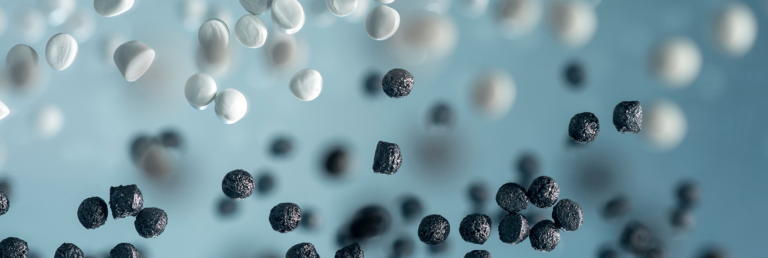Getting older and wiser: Lessons learned from developing two Fairphones
For those of us working at Fairphone, the past two years have been a wild ride, and we can still barely believe that we’re nearly ready to start producing our second phone! Sometimes we get so busy chasing the latest deadline that it is hard to find time to reflect on our past achievements, as well as what could be improved. But during the process of developing the Fairphone 2, that’s exactly what we needed to do. We took a good, hard, honest look at our successes with the Fairphone 1, as well as the areas where we needed to do better.
At the end of August, I sat down with our founder and CEO, Bas van Abel to pick his brain about what we learned from developing, producing and supporting the Fairphone 1 and how we’re applying these lessons to Fairphone 2.
From a campaign to a product
What were your overall ambitions for the Fairphone 1? Did you achieve everything you hoped to?
On the product level, we didn’t have a huge set of goals for Fairphone 1, except that it should include certain open design elements like opening it up to replace batteries, use regular screws and manage dual SIM. Our single most important focus was transitioning from the mission of our campaign (awareness of conflict minerals in electronics) to actually making a phone. And the first step in that was establishing a social enterprise that would grow organically and exist for the long run. And together with the 60,000 people who bought our first phones, we did it! So I consider the fact that we actually managed to set up a company, make and market a phone and implement several innovative projects throughout the supply chain a major success.
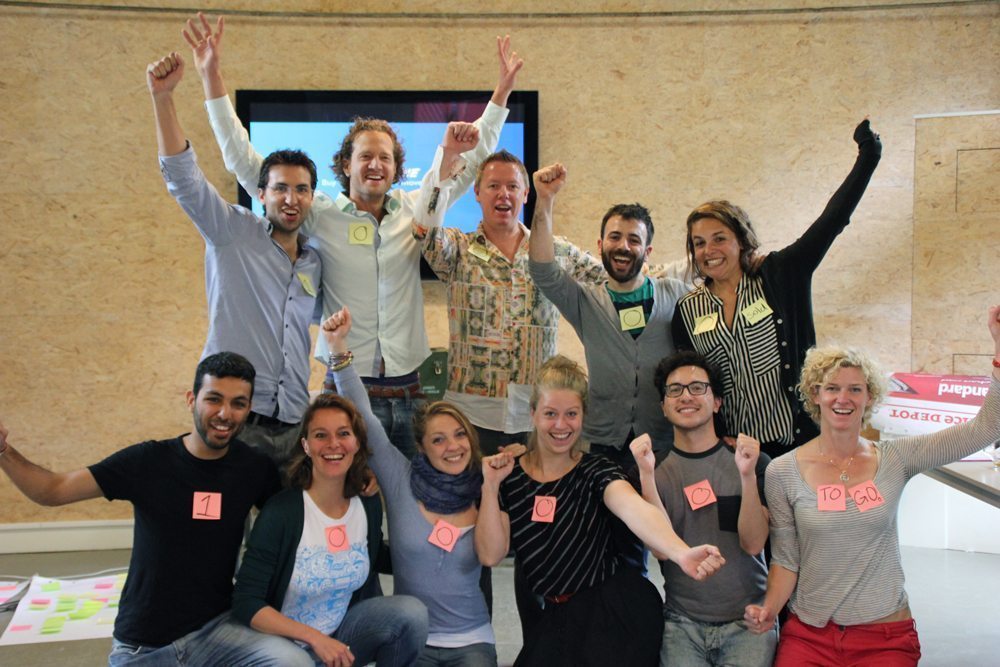
It was simply the only choice if we wanted to make and sell a phone within a reasonable timeframe. At the time, we weren’t big enough and didn’t have enough clout within the industry or the financial means to do it any other way — it costs a few million dollars to develop a phone from scratch. We decided that we would rather spend our money on influencing the supply chain.
Did the Fairphone 1 fall short of your expectations in any way?
As we went through the process of making the first Fairphone, we got stuck at a number of levels. We had very little control over how it was made, we didn’t have much influence in choosing the partners or suppliers we worked with, and we had limited input regarding the materials. The few ‘fairer’ elements that did end up in the phone, like conflict-free tin and tantalum, represented a significant amount of effort from the entire team. The overall experience with the Fairphone 1 translated directly into our approach for the Fairphone 2. It made us realize that to go deeper into the supply chain, it was necessary to focus directly on the product. That’s why we decided to develop our own design for the next Fairphone.
For the Fairphone 2, what are the key advantages of creating your own design?
Producing and selling the Fairphone 1 put us in a financial position where we could actually invest in an original design. Essentially, creating our own design helps us to start addressing the issues mentioned above: it gives us greater control over our supply chain, more power to select the suppliers we want to work with (especially second-tier suppliers), and improves our ability to specify certain components, materials and influence production processes. And importantly, it means that we can use design to put our ideas for longevity, repairability and ‘fairness’ in general straight into the phone itself. Olivier’s blog post about the phone’s architecture does a great job of explaining how these values are reflected in the Fairphone 2.
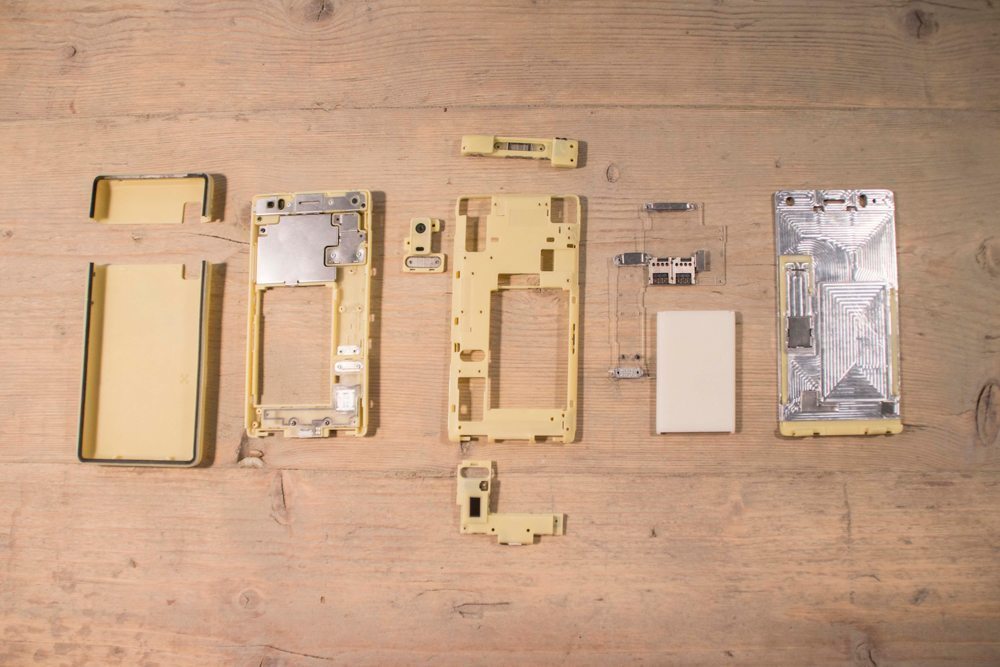
If you want all the details, I suggest you turn to our CTO Olivier Hebert. His blog post about designing and specifying the Fairphone 2 explains it really well. But to answer your question at a very high level, it comes down to the fact that we’re in the business of social innovation, not technological innovation. We wanted to make a simple but long-lasting phone while limiting the number of steps required to develop it and minimizing our total production footprint. The latest technology takes too much engineering capacity — so in general, we went for ‘second-newest’ version of the components. To use the processor as an example, the advantage of the Qualcomm® 801 platform was that the integration work had already been done on the chipset, and it was proven technology.
Why is the Fairphone 2 so much bigger (5-inch screen) than the Fairphone 1?
For the Fairphone 2, one of our primary objectives was keeping the phone relevant for the long term. That means we had to look at both current trends as well as into the future. And trend reports current point in one direction: bigger screens. This has to do with the fact that phones are becoming more of a media device than a calling device. We want to be able to service our phone for the next five years, and we felt confident that this screen size would still be produce and therefore available as a spare part at that time. Finally, the larger size gave us a bit more space to accommodate the modular architecture.
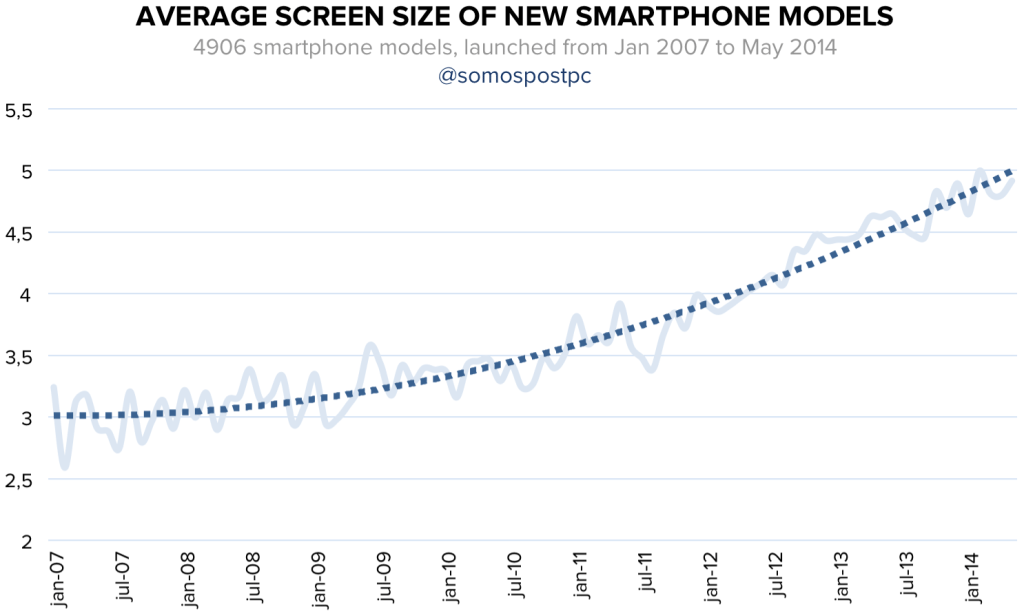
Well, one reason is higher value specs. To keep the phone useful for a long time, we selected proven components that we felt would be supported for longer. Another consideration is our fairly low production volumes, which means that the bill of materials is simply more expensive for us per phone than larger players in the industry. We also add a lot of value to our phones that has nothing to do with the specs — including the first-of-its kind architecture as well as the projects and social initiatives we support.
The final reason for the consumer price has to do with exchange rates. Honestly, we were aiming for a retail price of 475 euro phone. At the time we signed the production contract (in US dollars) the dollar was at 1.40 to the euro. And then, suddenly the euro plummeted and was nearly equal to the dollar. We had to charge 525 (incl. VAT) euros to cover our costs. But really, that price isn’t out of line with the rest of the market. A lot of people don’t get to see the upfront cost you pay for a phone due to the subsidized system that goes along with operator contracts. Ultimately, it’s up to consumer to decide if they get value from the Fairphone. If you don’t see the phone’s value, don’t buy it.
Software & support challenges
When the first Fairphone was launched, some buyers hoped that the software would be open source. In the end, that didn’t happen. Why?
We did open up everything that we were allowed to with the components we had, but we weren’t able to share the source code because of existing license agreements. With Fairphone 2, we have selected a chipset that will be supported longer by the chipset manufacturer. In addition, we are working hard to keep talking with the open source community. By releasing the complete build environment for Fairphone OS on Fairphone 2, which contains the full open source code, all the tools and the binary blobs, we want to offer a better ecosystem for open source communities to build their own Fairphone OS, custom ROM’s and alternative operating systems, which will also help to maintain the hardware for longer.
Another struggle we had was being able to offer the latest Android upgrades. Why was this a challenge?
In short, it had to do with the chipset not being supported. We depend on third parties for the majority of our OS development — only a tiny bit is done in-house. Kees wrote a blog post at the end of last year explaining the entire situation with software updates for the Fairphone 1. But the great news is we were persistent and we’ve finally obtained a software license from all our major partners and license holders that allows us to modify the Fairphone 1 software. Kees covered what this means for Fairphone 1 owners just a couple weeks ago.
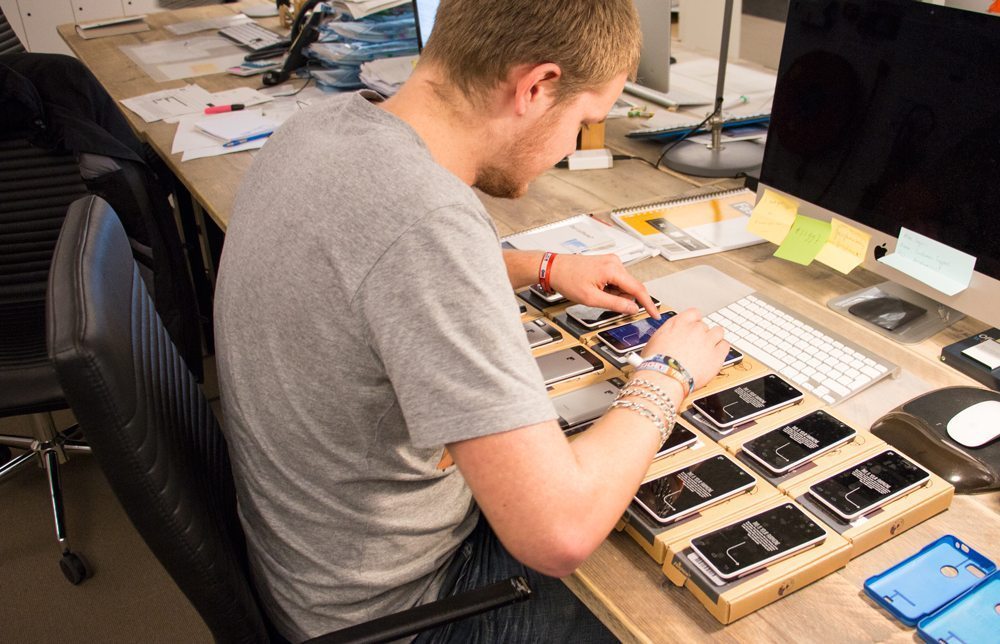
For the Fairphone 2, we’ve ensured that the chipset will have more support for the upgrades from the relevant vendors. We’re also working to be able to release all the tools needed for users to build their own OS on Fairphone 2. Finally, we’re also in talks with with several alternative OS providers, and hope to be able to make a more concrete announcement on that front soon.
Company, communications and community
With the Fairphone 1, we said that we wanted to grow the demand for fairer electronics. Do you think we achieved that?
Absolutely! The simple fact that we sold out of all 60,000 of the first Fairphones shows that there is demand for products like ours. And now over 18,000 people have pre-ordered the Fairphone 2. And that’s just the owners – there are many thousands more vocally showing their support. And without bragging too much, I think that all the awards we’ve received in the past year shows that our message is resonating with both consumers and the rest of the industry.
How will we spread our message further with the Fairphone 2?
We are in many ways still a campaigning organisation and in terms of communications, we will continue to raise awareness about the issues in the electronics industry. The Fairphone 2 is an ideal tool to do this because the design of the product itself represents our values. Its design focuses on empowering users to keep their phones as long as possible which will impact an overall environmental footprint, reduce e-waste and planned obsolescence. It represents our work with partners, suppliers and working groups to increase transparency and talk about processes behind production. This makes that the Fairphone 2 continues to be a storytelling device that can start conversations about what is fair and how each person can get involved in change. We’ll keep on supporting our community and believe in the power of word-of-mouth to influence change and spread the message.
Our team is growing really quickly and we moved into a bigger office 6 months ago. What are the challenges of such a rapid expansion?
What’s funny is the office move itself was a bigger challenge than we anticipated — it took so long to find the right space! And then we ended up just a block down the street from our former spot. Besides our physical location, the biggest challenge that comes with rapid growth is to keep on providing a clear structure for the company. We’re working on it, but as we grow responsibilities grow and so does the need for clear decision making.
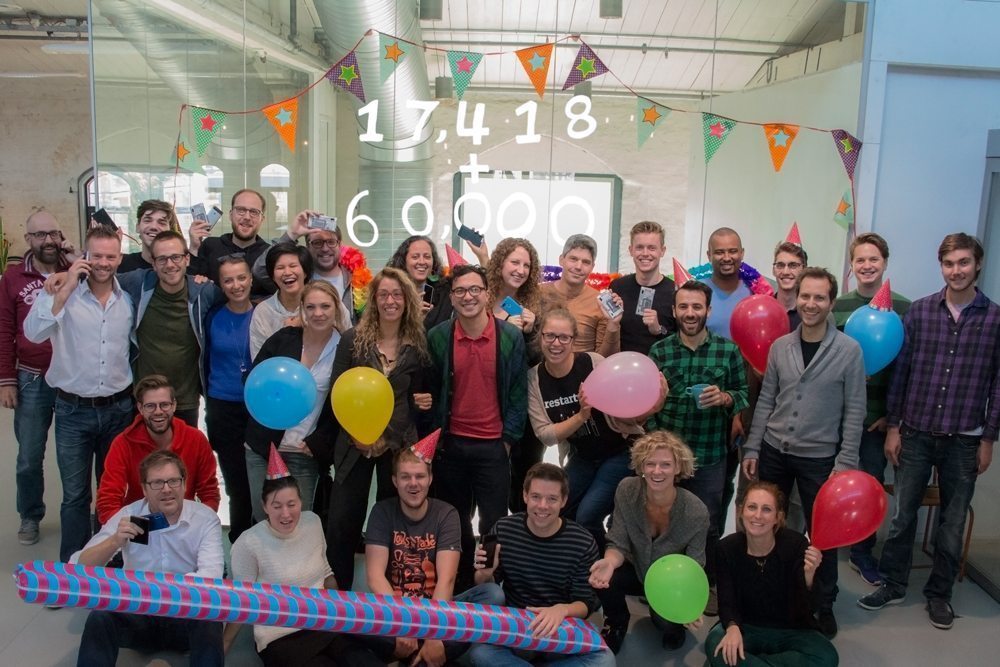
I’m incredibly proud of the team for having been able to get this far without external investment. Thanks to the community who believed in what we stand for, we have been able to show the world that there is really a strong foundation for an ethical market. We’re not adverse to external investment at all, we just felt strongly that at the early stage of the company, being able to stay independent would be a strong statement, both toward the industry, as toward the people who support us. We didn’t have to focus solely on making a (financial) return on investment, and could make independent choices about our direction and create value. We are now in a better position to start attracting the strategic investors who can support both our growth as well as our social mission.
Anything else you’d like to share with our community about what we’ve learned over the past two years?
I just want to reiterate how great our community is, check out the forum to follow some of the interesting discussions and activity that goes on between people. We’ve managed to create a very open, inclusive company culture, and somehow our community senses that. For example, every month a Fairphone owner or fan randomly shows up at our office. Maybe with a repair question, maybe just to say hi. It’s amazing, but we couldn’t manage if too many people decided to show up at once. So we love your enthusiasm, but maybe let us know next time if you plan to stop by.
But seriously, I really want to say thank you. We knew when we started that we could only survive with a great group of people rallying around us. That’s still as true today as it was two years ago.


